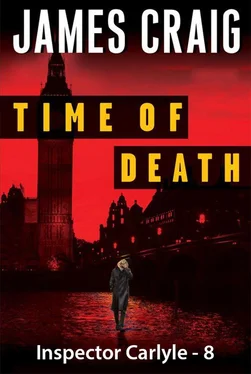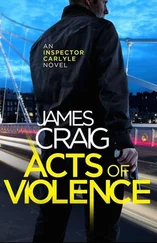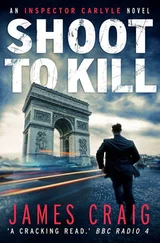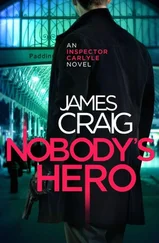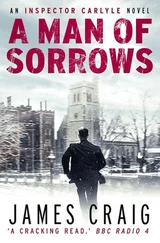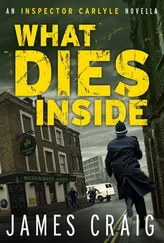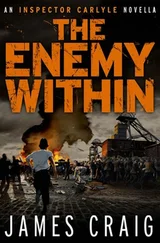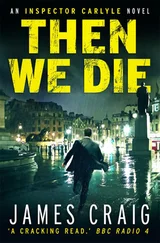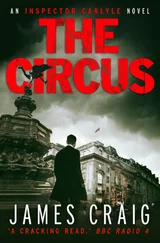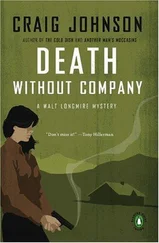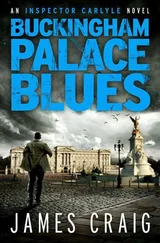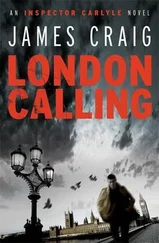James Craig - Time of Death
Здесь есть возможность читать онлайн «James Craig - Time of Death» весь текст электронной книги совершенно бесплатно (целиком полную версию без сокращений). В некоторых случаях можно слушать аудио, скачать через торрент в формате fb2 и присутствует краткое содержание. Год выпуска: 2014, Издательство: HarperCollins, Жанр: Полицейский детектив, на английском языке. Описание произведения, (предисловие) а так же отзывы посетителей доступны на портале библиотеки ЛибКат.
- Название:Time of Death
- Автор:
- Издательство:HarperCollins
- Жанр:
- Год:2014
- ISBN:нет данных
- Рейтинг книги:4 / 5. Голосов: 1
-
Избранное:Добавить в избранное
- Отзывы:
-
Ваша оценка:
- 80
- 1
- 2
- 3
- 4
- 5
Time of Death: краткое содержание, описание и аннотация
Предлагаем к чтению аннотацию, описание, краткое содержание или предисловие (зависит от того, что написал сам автор книги «Time of Death»). Если вы не нашли необходимую информацию о книге — напишите в комментариях, мы постараемся отыскать её.
Time of Death — читать онлайн бесплатно полную книгу (весь текст) целиком
Ниже представлен текст книги, разбитый по страницам. Система сохранения места последней прочитанной страницы, позволяет с удобством читать онлайн бесплатно книгу «Time of Death», без необходимости каждый раз заново искать на чём Вы остановились. Поставьте закладку, и сможете в любой момент перейти на страницу, на которой закончили чтение.
Интервал:
Закладка:
‘I suppose so,’ Amelia said, raising her eyes to the ceiling. She ushered him towards the door. ‘Thanks, Mr Carlyle.’
‘I’ll let you know how I get on,’ he replied, happily handing her back the untouched mug of coffee.
‘Thanks.’
‘But I’ll need to speak to Social Services about Jake.’
She started to complain, but thought better of it.
He softened the blow. ‘Just so that there’s someone else keeping an eye out for him too.’
A pained expression crossed Amelia’s face. ‘Jake is loved, Inspector.’
‘Maybe he is,’ Carlyle shrugged. ‘But that’s not always enough. That girl’s too young.’
‘Sam does her best.’
‘The kid is four already. Unless the situation here changes, and quickly, he is fucked for life.’
‘What else can she do?’
‘She can go on benefits,’ Carlyle hissed, ‘like everyone else.’
‘What? And live on a hundred and twenty quid a week?’
‘There are worse things than being poor. She needs to smarten up.’
‘I know.’
‘For the kid’s sake.’
‘Yes.’
‘That’s your side of the deal.’
The woman nodded. ‘I understand.’
‘It’s a deal then.’ Carlyle smiled with as much enthusiasm as he could muster. ‘Expect me to hold you to it.’
On his way down, Carlyle passed a sheepish-looking man in his fifties who was trudging up the stairs while keeping his eyes firmly on the steps in front of him. Outside, in the sunshine, it felt even hotter than before, as if the temperature had been raised another five or ten degrees. The air was turning heavy and it seemed as if the forecast thunderstorms were now on the way. He had a nagging headache from too much caffeine, and his appetite for what was to come back at the station had dwindled to next to nothing. Needing to rehydrate, he went round the corner into Earlham Street and bought a bottle of water and a mango smoothie from the Big Banana Juice Bar next to Cambridge Circus. He stepped off the pavement and between a couple of parked cars, downing the water first and then the smoothie. The Fopp music store in Shaftesbury Avenue across the road was advertising The Clash by The Clash. He wasn’t sure about the lurid pink cover and he wasn’t going to spend thirty quid on a book, but he fancied a peek. For Carlyle, The Clash were, still, the greatest rock band ever. He had seen them a few times before their untimely demise, and he wanted to wallow in a little nostalgia for those days of his youth.
Dropping his empty bottles in a bin, he crossed the road and stepped inside, experiencing the usual mix of pleasure and guilt at bunking off, even if only for a short while.
When he finally returned to Charing Cross police station, Carlyle dawdled at his desk, still in no hurry to get into the interview room. If Mills was going to stick to his Chilean story, it was likely to be a long and painful afternoon. Carlyle had endured more than his share of domestics over the years, and it was always a struggle spending hours going round the houses just to get formal confirmation of what you already knew. The endless ability of people to delude themselves never ceased to amaze him. Numbers, on the other hand, never lied. Carlyle was a firm believer in statistics, and the statistics told you that most victims were killed by people they knew. It was common sense, of course: usually, the only people you can annoy enough for them to want to kill you, are your nearest and dearest. Carlyle knew of several occasions when he himself might have been in serious trouble if Helen had been holding a skillet at the time – or vice versa. That was just a reality of everyday life . . . and death.
On his way to the basement he passed the front desk, eyeing the usual motley collection of supplicants waiting to be disappointed in one way or another. He nodded at Sergeant Dave Prentice, chewing on the end of a pencil while he contemplated some form that was lying in front of him.
‘Dave.’
The desk sergeant pulled the pencil out of his mouth and looked up. ‘John.’ He had the exhausted look of a man who had spent too long on the front line, trying to keep the public at bay. Carlyle, like everyone else in the station, knew that he was counting down the days to his long-awaited retirement to Theydon Bois, a suburb at the eastern end of the Central Line.
‘Anything interesting today?’
‘Not really.’ Prentice nodded towards a sickly-looking man in chinos and a white shirt, sitting on one of the benches. ‘That bloke,’ he whispered, smirking, ‘says some schoolgirls tried to beat him up in the National Gallery.’
Carlyle looked at the guy. There wasn’t a mark to be seen on him. ‘Where are the schoolgirls?’
‘They did a runner.’
‘Stands to reason.’
‘But the guy insists on making a complaint,’ Prentice sighed. ‘What a tosser. He can sit there for a while. Anyway, did you hear about Dog?’
‘No. What’s he done now?’ Carlyle asked. Walter Poonoosamy was a regular nuisance in the neighbourhood. His nickname came from his preferred way of chiselling tourists, asking them for cash to support his fictitious pet Labrador which went by the name Lucky.
‘He was found dead last night in a pew in the Actors’ Church,’ Prentice explained. ‘The rector came across him there when he was closing up. Gave him quite a scare, apparently. They reckon it was a heart attack. He was only forty-four, which is amazing considering he looked well north of sixty.’
‘I suppose so,’ Carlyle conceded. ‘But at least he beat the odds.’
Prentice looked at him quizzically. ‘How do you mean?’
‘I read somewhere that the life expectancy for homeless guys is forty-one. If he made it to forty-four, Dog beat that by almost ten per cent.’
Prentice shrugged. ‘Tough old world.’
‘Yes,’ said Carlyle, ‘it sure is.’
Upstairs, Joe was waiting for him. He was munching a chicken sandwich while watching a couple of men in suits record the space between the desks with metal tape measures.
Carlyle gave his sergeant a questioning look.
‘Estate agents,’ explained Joe softly, sticking the last of the sandwich in his mouth.
‘What?’ asked Carlyle. ‘Are we selling the station?’
‘Buying it.’
‘Huh?’
‘Apparently,’ said Joe, ‘the station building was sold to a hedge fund or something as part of a job lot several years ago, in a sale and leaseback deal. The cash paid for a black hole in the pension fund. Anyway, now that the property market has collapsed we’re going to buy it back. According to the Police Review , the Met is going to make a fifty million pound profit.’
Carlyle watched as the two men disappeared round a corner, in search of other things to measure. ‘Better than the other way round, I suppose. But when did we become property developers rather than coppers?’ He scratched his head. ‘Is Henry Mills downstairs yet?’
‘Yeah.’ Joe had now turned his attention to a chocolate doughnut which then disappeared in three rapid bites. ‘He’s in interview room six. We’re ready to go.’
Riddled with prevarication, Carlyle was more interested in food. ‘I’m going to get a bite to eat,’ he said. ‘Then I’ll go and have a chat with him. In the meantime, round up all the reports, so we can go through everything this afternoon.’
‘Will do.’
‘Anything from Bassett yet?’
‘Yeah,’ said Joe. ‘He emailed through his preliminary findings. Nothing we don’t already know. The force used in killing her was more than you might expect from an old guy like Henry Mills, but in these type of domestic situations you never know.’
‘Quite.’
‘It looks like the skillet was the murder weapon. They found some hair and skin in the dishwasher pipes.’
Читать дальшеИнтервал:
Закладка:
Похожие книги на «Time of Death»
Представляем Вашему вниманию похожие книги на «Time of Death» списком для выбора. Мы отобрали схожую по названию и смыслу литературу в надежде предоставить читателям больше вариантов отыскать новые, интересные, ещё непрочитанные произведения.
Обсуждение, отзывы о книге «Time of Death» и просто собственные мнения читателей. Оставьте ваши комментарии, напишите, что Вы думаете о произведении, его смысле или главных героях. Укажите что конкретно понравилось, а что нет, и почему Вы так считаете.
